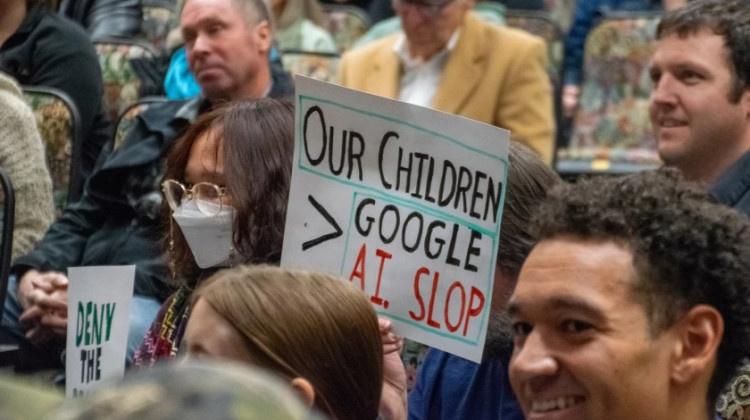The legislative focus of this year’s session wasn’t a mystery. Lawmakers already spent more than a year debating road funding. And so it wasn’t a surprise when Gov. Eric Holcomb told the General Assembly this in the first weeks of session.
“I will work with you to establish a plan that invests in the new projects for the future that ensures Indiana will remain The Crossroads of America,” Holcomb said.
But it was not the only big goal – or debate – this session.
A number of education issues garnered significant attention, including groundwork to replace the ISTEP+ and changing the state superintendent from an elected to appointed position. The General Assembly also doubled annual money for state-funded preschool – a move Speaker Brian Bosma (R-Indianapolis) celebrated.
“A $44 million investment in pre-K education during the biennium – that was one of our top priorities for this session,” Bosma said.
Lawmakers also broke up an e-liquids – or vaping – industry monopoly they’d created, one that led to legal action and an FBI inquiry.
And as Sen. Randy Head (R-Logansport) told his colleagues, a federal court ruling in January, invalidating most of Indiana’s e-liquid rules, only heightened the pressure.
“If we don’t implement Senate Bill 1, there will be no regulations. And it will be easier for people who want to do bad things to put illegal substances in e-liquid and ship it here, there, and anywhere else,” Head said.
Then there were the controversial social issues that seem to happen every year.
One bill, sent to the governor, dealt with parental notification of abortion. Sen. Erin Houchin (R-Salem) said her bill was aimed at strengthening parental rights.
“It just requires that parents be involved in these critical decisions that affect their minor children,” Houchin says.
The bill originally required parents be notified if their child sought abortion consent from a judge. It raised concerns about confidentiality – and as Sen. Vaneta Becker said, grim consequences.
“All this bill will do is encourage back-alley abortions,” Becker said.
The House made it the judge’s job to determine whether parents are notified, and only after the judge grants or denies the consent.
Some measures drew attention when they didn’t pass. In the Senate, a bipartisan push to pass a hate crimes bill was not called down for a floor vote. Sen. Tim Lanane (D-Anderson) summed up supporters’ sentiments.
“I’m very sorry that we couldn’t find the courage in this body to take this matter up…I guess we’ll say again, ‘Maybe next year,’” Lanane said.
And in the House, a bill reforming Indiana’s redistricting process – backed by Bosma – couldn’t even get a vote in committee. The speaker was blunt about its failure.
“Some of the members of the Elections Committee had a lot of questions about it. I’m not convinced it would have come out of committee if it had a vote,” Bosma said.
And then there was alcohol – the issue no one saw coming and leadership wasn’t happy showed up.
Convenience store owner Jay Ricker acquired restaurant permits for two of his convenience stores. Those permits allowed him to sell cold beer and hard liquor for carryout – previously, a right reserved almost solely for liquor stores. That provoked a swift response from lawmakers like Bosma.
“We are definitely addressing their permits, which are significantly different than anything that the ATC had issued before,” Bosma said.
Their final solution was to keep the status quo for all existing permit holders…except Ricker’s, which will likely lose its licenses next year. As one might expect, Jay Ricker wasn’t happy.
“I’m just shocked that they won’t listen. It appears that the leadership in many cases has singled us out,” Ricker said.
But in the end, everything circled back to road funding. And after months of haggling, legislators agreed on a tax-raising, fee-creating, revenue-producing infrastructure plan. Senate President Pro Tem David Long (R-Fort Wayne) was effusive in his praise.
“We’re not kicking the can down the road. We’re taking responsibility for what we need to do for today and for tomorrow in our state so we don’t dump this debt and this problem on our kids. I’m very proud of that,” Long said.
Praise for the bill isn’t universal, though. Taxpayer advocacy groups argued the measure’s tax hikes were unwarranted, with some pledging retribution at the ballot box.
But that opportunity won’t come until next year,and Speaker Bosma says the legislature will already be moving on to their next challenge.
 DONATE
DONATE







 View More Programs
View More Programs


 Support WFYI. We can't do it without you.
Support WFYI. We can't do it without you.